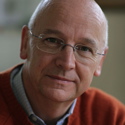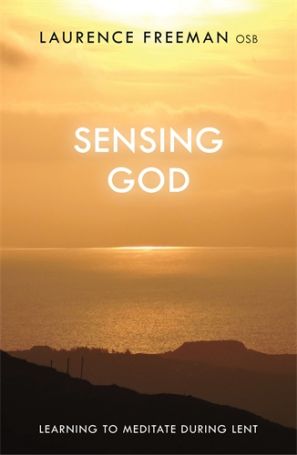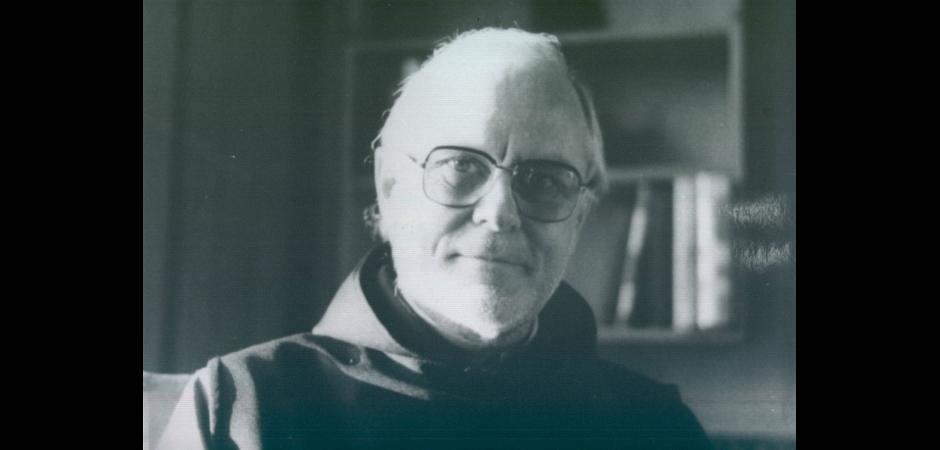
Dearest Friends,
Interview with Laurence Freeman for Svjetlo Rijeci (Light of the Word, Sarajevo)
Fr. Ivo introduces Fr. Laurence Freeman OSB, Director of The World Community for Christian Meditation (www.wcm.org) and presents the booklet “Christian Meditation: Your Daily Practice” and the reasons for his being invited to Bosnia.
1. Fr. Laurence, you have chosen spirituality to be your vocation, your life. What actually is ‘spirituality’?

Dearest Friends,
Interview with Laurence Freeman for Svjetlo Rijeci (Light of the Word, Sarajevo)
Fr. Ivo introduces Fr. Laurence Freeman OSB, Director of The World Community for Christian Meditation (www.wcm.org) and presents the booklet “Christian Meditation: Your Daily Practice” and the reasons for his being invited to Bosnia.
1. Fr. Laurence, you have chosen spirituality to be your vocation, your life. What actually is ‘spirituality’?
The early church had a saying: the way you pray is the way you live. I think that describes what spirituality means. It is not just a ‘leisure activity’ or a hobby but a set of beliefs, values and practices that pervade and shape every aspect of one’s life. Of course, who can be completely consistent? Not many of us! There is always some shortfall between belief and practice. That is why spirituality also needs some communal support and structure – an external discipline of charity or ascesis to help us with our inner discipline. I became a monk because I hungered for inner freedom and a completely integrated life. I think that is a universal hunger but I had to satisfy it as a monk because of my own particular personal wounds and my general lack of discipline! Everyone is able to develop a spirituality – a way of living spiritually from the core of one’s being. The split between spirituality and religion today is understandable but not really necessary or beneficial to most people. In a word, spirituality is prayer. The depth and quality of one’s prayer determines the depth and quality of our spirituality and our life as a whole.
2. How do you see our world we live in today, its hunger or need for spirituality, for relation to God?
Our world is in huge turmoil and an old order is passing away in every aspect of human society. In times of crisis and danger the contemplative heart of religion inevitably comes to higher prominence. Increasingly, people look towards the deeper mysteries of being that give meaning to what seems random and chaotic in their personal and collective experience.
In all my travels I sense a great thirst for deeper personal experience of the spiritual reality, for God. Spirit means what is real and can be experienced but what cannot be measured or fully defined. The spiritual hunger of our time takes many expressions – different among the western youth who have been alienated from institutional religion, or among the older generation looking back to more stable religious and social structures. The challenge to all religious leaders today is to recognize the universality of this hunger and to put aside their collective (and personal) egos and to respond directly to this hunger – as a top priority – from the richness of their own tradition. This will empower religion once again to become a transcultural force for healing and unification rather than an excuse for justifying division and conflict.
If the main religions don’t rise to this challenge the demand for spirituality will be ‘dumbed down’ and trivialised as another commodity or another form of the entertainment industry.
I was recently in Haiti with a group of our Christian meditators and I was deeply moved and instructed by the response of young Haitians especially in this, the poorest country of the Western hemisphere, to meditation. I really understood – after 25 years of believing it! – that teaching meditation is a political act, in the best sense. It raises consciousness and gives people a stronger sense of their personal identity and innate value. From that new awareness(lets call it ‘self-confidence’ or ‘self-knowledge’) comes a great determination to change the structures of society that need to be changed. Spirituality is justified if it awakens the hunger for justice. Then it will lead to religions that are truly prophetic. Love and compassion also result from contemplative prayer and for that reason they can control action from becoming fanatical or too angry.
3. For a long time we have been speaking about the crisis of faith and church, and all religions. What is actually in crisis?
The language of faith has failed to keep pace with the language of the world. That does not mean that the language of faith is just ordinary street language or academic language. Of course what we say about faith has to use the same words that we use in ordinary life, but we give them other, more subtle meanings. A crisis happens when the interpretative ability to use religious language fails.
By language, I don’t mean only words. The language of faith embraces all the external forms of religion, worship, doctrine and religious buildings and structures. Religious leaders must bear a lot of this responsibility for the disconnect or distortion that is happening in religion. They are often frightened to risk testing their traditional language in the market place or in the experience of the young or the experience of science or contemporary ideas. So church becomes a kind of ghetto or escape hatch for many people and less attractive and real as a consequence for many others. There is hope though! The hope is that this language never dies completely – as long as the spiritual meaning is kept alive in the experience of some people.
So we must wait for inspired leaders to relate to the spiritual hunger of the majority. I see these leaders arising from the grass roots and the margins. What is in crisis is the credibility of faith. Wisdom and compassion are what revive this credibility of the language of religion. So we’re back to spirituality again!
4. The answer to the spiritual need of our world you have found in the approach and thought of your Benedictine brother John Main. Could you introduce John Main and the basis of his spirituality?
John Main was born into a Catholic family in 1926 and was raised with a strong and intelligent faith. While he was a diplomat in the Far East in the 1950’s he also encountered the practice of meditation which he incorporated into his daily prayer and life of faith. It became very important to him as a contemplative discipline, enabling him to stop thinking about God and, as he said, ‘to be with God’. Going beyond thoughts, words and imagination at the times of meditation helped him experience the meaning of poverty of spirit and the prayer of presence – being present to God who is always present to us. This was his awakening to the inner meaning of all the contemplative traditions. Some years after he became a monk he found and recognised essentially the same method of meditation in his own Christian tradition – in the Desert Fathers, the early Christian monks and the Conferences of John Cassian, the great teacher of St Benedict. He came to see that this simple practice and the rich theology of faith that lies behind it could help many people today, in all walks of life, to verify the truths of their faith in their own experience. He knew, of course, that meditation does not replace other forms of prayer but gives them new depth and significance. For him – as for the very many he has helped as a teacher – meditation is the lost chord of Christian spirituality and recovering it at the personal level is one of the first steps to transforming the Church at every level. Fr John died in 1982, but his vision and influence continues as a real presence in the lives of many who never met him personally, through the World Community that he inspired. He believed that meditation creates community, and that is a radical insight of great significance for any spiritual understanding of our times.
5. Did you personally know John Main?
Fortunately, yes. I first met him when I was a boy at the monastic school where he was teaching at that time. I was immediately impressed by his personality, his humour and intelligence, his authority and gentleness. But it was not till I was at university that he became my spiritual teacher in the real sense, when he introduced me, very simply and directly to meditation. I wasn’t looking for it consciously at that time but I instantly recognized it as a way of genuine value. When I eventually joined the monastery and helped Fr John establish the first Christian Meditation communities it was an exciting and transformative period of my life. Just before he died, I asked him what I should do next and he smiled and said simply; ‘you’ll do what you have to do.’ At the time that did not seem very helpful advice, but over the years I have realized how wise and liberating it was. He was my teacher and friend.
6. Would you, please, for the readers of Light of the Word (Svjetlo Rijeci) briefly present the Christian meditation you promote.
What makes meditation Christian is our faith in Christ, our sense of a personal relation with him and his indwelling presence. Meditation is, of course, also a universal part of humanity’s spiritual and wisdom heritage. The essential elements are silence, stillness and simplicity. In meditation we re-centre our attention from the mind (thinking, dreaming, analyzing, planning, remembering, daydreaming, etc.) to the heart. The heart is the symbol, in all faiths, of the deep unity and wholeness of the human person. There we are one with ourselves, with others and with God. The challenge is to let go of the ego attachments we have to the contents of our mind (some negative, some positive). To do this, in a gentle and yet effective way, we take a single word or mantra and repeat it continuously, faithfully, attentively, during the meditation period. When we get distracted we return to the word. The tradition advises us to incorporate this into life as a twice-daily practice. The best times are early morning and early evening. However long it may take for you to do this, keep it as your goal. If you give up, start again.
I have become convinced that it is good even just to hear about meditation – even if you don’t practice it – because it opens up a new horizon for your sense of self and the world. But it is very powerful and wonderful when you do begin to practice. Don’t worry about being perfect. Just be faithful. An old rabbi once said, ‘God doesn’t expect us to succeed, but we are not allowed to give up.’ Meditation is simple and natural. We see this in the way even young children take to it and like it. We are introducing meditation into many Catholic schools these days. It has convinced me that the simplest and cheapest way to change the future may be to teach children to meditate. If you have any doubts about meditation, meditate with a child!
7. Can meditation be a connection of understanding and closeness among religions?
Of course. What could be a more direct and transformative connection than meeting in the spiritual centre that is both intimately personal and transcendent?
I have learned a lot about inter-religious dialogue over the years from my work with the Dalai Lama. He always insists that the differences are as important as the similarities – and we should not try to put ‘a sheep’s head on a yak’s body’. We need to find a way to respect differences, even celebrate them and learn from them, so that they do not become divisions. I am convinced that meditating together creates a predisposition to tolerance and respectful curiosity in dialogue, to a humble attitude of listening, to being with another rather than trying to convert them or to win the point. Of course, this attitude can wear off quickly in the heat of dialogue or discussion. The ego is always quick to reassume control of the situation. Look at the endless peace talks in the Middle East. But what if some leaders, respected by their own side, could persuade their negotiators to agree to sit in silence, in meditation in their own faith, for a short time as a preparation for the meetings? What if they could then be persuaded to sit with the opposing side in silence at the beginning of their conference? It would be a brave and strong leader who would try to do this – a Ghandi or Mandela of the spirit. It seems a crazy idea perhaps. But maybe crazy enough to be realistic!
8. It seems that many in religions are afraid of the closeness of religious experience. Why, and is it necessary to be afraid of it?
At the heart of every religion there is a silent, humble act of pure worship, the bowing of the human ego to the mystery of God. This core of contemplation is expressed in the great mystical traditions that all faiths have generated and which have many internal bridges and cross-influences. I don’t know of many religious leaders who explicitly reject this mystical dimension of faith. But nor do I know many who actively encourage their ordinary followers to delve into it and practice it.
In many religions there is a fear and suspicion of this tradition – as well as ignorance about it. The reason is obvious. The external power structures, hierarchies and doctrinal edifices of religion are relativised by what emerges from the contemplative experience. They are not demolished (immediately, anyway) but in the light of contemplative experience the egotistical element of religion is exposed. The role of clergy and laity is seen in a less rigid way, men and women are seen to be truly equal, the meaning of worship is seen in relation to the inner life as well as to social or institutional issues. Meditation is dangerous to any power structure – so was Jesus for that matter! The only authority that survives the purifying power of contemplation is the authority of love.
9. One of the disciples asked Jesus, "Lord, teach us to pray” (Luke 11:1). May you teach readers of Light of the Word to pray?
Jesus, for the Christian, is the ‘teacher within’. Other teachers in our lives are secondary and supplementary. Even the greatest teachers in the tradition point to the teacher within who teaches us through our own experience. First, we need to access our own interiority. When I was teaching at Georgetown University recently, I was deeply moved by one of my students who, at the end of the term, told me she had never realized before that she had an inner life. Intelligence, education, worldly success can all happen and still leave us pitifully unaware of our inner life. That is tragically true for many people in our culture.
There are many ways of prayer – like the spokes of a wheel, they all converge in the centre or hub. That convergence is contemplation. So we can’t reduce prayer to techniques or methods, just as we can’t reduce religion to dogma or ritual. Nevertheless, we need means to the end. Meditation is the most simple, direct and universal of means and gives new depth and purpose to all the other elements of religion.
Jesus did not give any method of prayer except the 'Our Father' and the example of his own religious observance. But he did highlight the essential elements of prayer in the Sermon on the Mount: interiority (‘go into your inner room’), trust (‘your heavenly Father knows your needs before you ask’), brevity and silence (‘do not go babbling on…’), freedom from worry (‘do not worry…’), mindfulness (‘set your mind on God’s Kingdom before everything else’) and living in the present moment (‘do not worry about tomorrow’). Put these elements together and you have contemplation.
Jesus was a teacher of contemplation. His teaching on non-violence cannot be appreciated or taken seriously without this dimension. Meditation is the work we do to receive the grace of contemplation, which the Holy Spirit is. I have found that meditation as a daily practice helps me to see that prayer is the raising of the mind and heart to God in all situations and activities. We are meant to pray without ceasing, which means, for the Christian, to drop hold of ‘my’ prayer and enter fully into ‘the’ prayer of Jesus. His prayer is his life in the dynamic exchanging of love in the Trinity. This is how I see prayer and why prayer is about realising the fullness of human potential. This is what we are made for and programmed for!
Laurence Freeman is a Benedictine monk of the Congregation of Monte Oliveto and also Director of The World Community for Christian Meditation (www.wccm.org)



